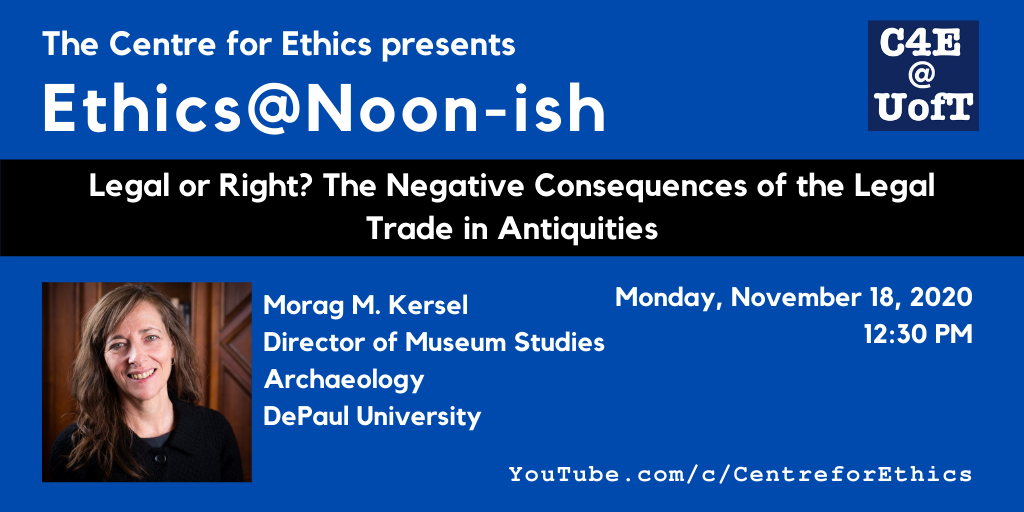
Legal or Right? The Negative Consequences of the Legal Trade in Antiquities
It is legal to sell artifacts in licensed antiquities markets such as those in the United States, the United Kingdom, and Israel, but is it right to buy an artifact with a murky past? Certain “legal quirks” (a term coined by noted cultural heritage lawyer Patty Gerstenblith) in national and international legal regimes allow for a blurring of illegal and legal elements in the antiquities trade. Such legal quirks often result in a market supplied by the looting of archaeological sites, and thefts from museums and archaeological storehouses. A study focused on the legal and illegal movement of Holy Land artifacts demonstrates that the market in Israel, while legal in name, possesses a number of illegal elements, which allow recently looted artifacts to be laundered and then legitimately traded. Where does our own ethical discernment and idea of what is right in the demand for antiquities fit into the diverse spectrum of the effects of such demand on local people and archaeological landscapes?
► please register here
This is an online event. It will be live streamed on the Centre for Ethics YouTube Channel on Wednesday, November 18. Channel subscribers will receive a notification at the start of the live stream. (For other events in the series, and to subscribe, visit YouTube.com/c/CentreforEthics.)
Morag M. Kersel
Director of Museum Studies, DePaul University
Archaeology
Wed, Nov 18, 2020
12:30 PM - 01:45 PM
Centre for Ethics, University of Toronto
200 Larkin
